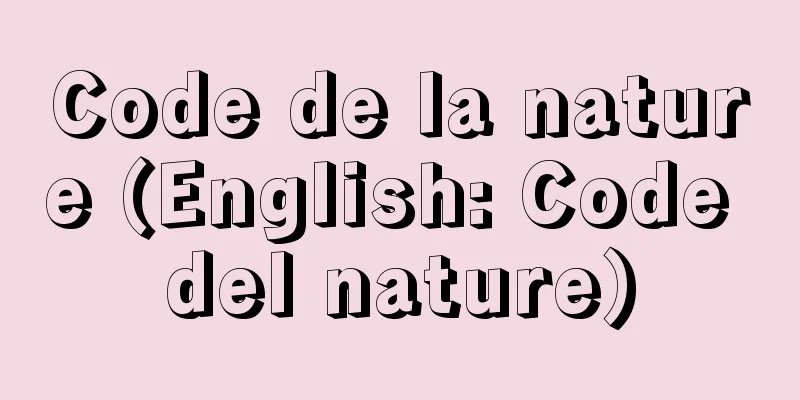judicial assistance

|
This refers to the legal assistance that courts give to each other when dealing with cases, and can be done both domestically and with foreign countries. In the case of domestic courts, it refers to entrusting part of the court's administrative work to other courts. For example, in Japan, lower courts each have limited jurisdiction, so they may entrust judicial work such as the examination of evidence to other courts, and mutual assistance is provided for by law (Article 79 of the Court Act). The need for judicial assistance with foreign countries has increased as civil and criminal troubles have become more frequent with the increase in international exchange of people and goods. The ability to apply Japanese criminal law to crimes committed abroad is legally different from the extent to which Japan's investigative and judicial powers extend. Under international law, a country's judicial power cannot extend to a foreign country due to the barrier of national sovereignty, and the exercise of the aforementioned investigative powers is considered an exercise of sovereignty, and therefore, without the consent of the other country, it is an infringement of territorial sovereignty, i.e., a violation of international law. This creates a need for judicial assistance with foreign countries. Since such judicial assistance is carried out reciprocally, treaties to that effect are often concluded between two or more countries. Japan has responded to requests for judicial assistance from foreign courts by enacting the Law on Mutual Assistance at the Request of Foreign Courts (Law No. 63 of 1905) as a domestic law. After the Second World War, Japan joined the Convention on Civil Procedure (1954) and the Convention on the Service Abroad of Judicial and Extrajudicial Documents in Civil or Commercial Matters (1965) adopted by the Hague Conference on Private International Law. In response to this, the Law on Special Provisions for Civil Procedure, etc. in Accordance with the Implementation of Conventions on Civil Procedure, etc. and the Rules for the same (Supreme Court Rules No. 6 of the same year) were enacted. In addition, in response to the increasing need for international judicial assistance due to the increase in international crimes in recent years, Japan has concluded bilateral criminal judicial assistance treaties with the United States (2006), South Korea (2007), and China (2008), and in 2009, it concluded a similar agreement with the European Union (EU). In response to the need to facilitate international criminal investigations, the Law on International Investigative Assistance (Law No. 69 of 1980) was enacted, which stipulates procedures for the provision of evidence necessary for criminal investigations upon request from a foreign country and cooperation with the International Criminal Police Organization (ICPO). Incidentally, international judicial assistance is considered to include not only litigation assistance but also the mutual extradition of fugitives with other countries. Japan has the Fugitive Offenders Extradition Act (Act No. 68 of 1953) as a domestic law, and has also concluded bilateral extradition treaties with the United States (1980) and South Korea (2002). Despite these improvements in the international judicial assistance system and the growing awareness of cooperation, the trend toward increasing international crime shows no sign of abating, so there is a need to further strengthen crime prevention measures both domestically and internationally. [Shimada Yukio] [References] | | | |Source: Shogakukan Encyclopedia Nipponica About Encyclopedia Nipponica Information | Legend |
|
裁判所が事件を処理する際に相互に与える法律上の援助をいい、国内で行われる場合と外国との間で行われる場合とがある。国内の場合、裁判所の事務処理の際に事務の一部を他の裁判所に委託することをいう。たとえば、日本では下級裁判所は、それぞれ管轄区域が限定されているため、証拠調べなど裁判事務を他の裁判所にゆだねることがあり、相互に補助しあうことが法律で定められている(裁判所法79条)。 外国との司法共助は、人や物の国際的交流の増加に伴って民事、刑事のトラブルが頻発するようになり、その必要性が高まったものである。犯罪が外国で犯される国外犯について日本の刑法を適用できることと、日本の捜査権や裁判権が及ぶこととは法的に異なる。国際法上一国の裁判権は、国家主権の壁があるため、当然に外国に及ぶことはありえず、前述の捜査権の実施などは、主権行使の一つとみなされるため、相手国の同意がなければ、領土主権の侵害、つまり国際法違反の行為となる。したがって、外国と司法共助を行う必要が生じることになる。こうした司法共助は相互的に行われるため、2国間や多数国間でその旨の条約を結ぶことが多い。 日本は国内法として「外国裁判所ノ嘱託ニ因(よ)ル共助法」(明治38年法律第63号)を制定し、外国裁判所からの司法共助の要請にこたえてきた。第二次世界大戦後、日本は、ハーグ国際私法会議が採択した「民事訴訟手続に関する条約」(1954)と「民事又は商事に関する裁判上及び裁判外の文書の外国における送達及び告知に関する条約」(1965)に加入した。それに伴い、「民事訴訟手続に関する条約等の実施に伴う民事訴訟手続の特例等に関する法律」(昭和45年法律第115号)と同上規則(同年最高裁規則第6号)が制定された。また、近年の国際犯罪の増加に伴い国際的な司法共助の必要性の高まりを受けて、日本はアメリカ(2006)、韓国(2007)、中国(2008)と次々に2国間の刑事司法共助条約を締結し、2009年(平成21)にはヨーロッパ連合(EU)と同様の協定を締結している。 なお、国際犯罪捜査の円滑化の要請を受けて「国際捜査共助等に関する法律」(昭和55年法律第69号)が制定され、外国からの要請により事件捜査に必要な証拠提供に関する手続と国際刑事警察機構(ICPO)への協力について定められた。 ところで、国際司法共助は、こうした訴訟共助以外に、外国と相互の逃亡犯罪人引渡しも含むという考え方があり、日本は、国内法として「逃亡犯罪人引渡法」(昭和28年法律第68号)をもつ一方、二国間条約として、アメリカ(1980)および韓国(2002)と逃亡犯罪人引渡条約を結んでいる。 こうした国際司法共助体制の充実と協力意識の高まりにもかかわらず、国際犯罪の増加傾向はいっこうに収まる気配がないため、国内・国際両面での犯罪対策のいっそうの充実が望まれる。 [島田征夫] [参照項目] | | | |出典 小学館 日本大百科全書(ニッポニカ)日本大百科全書(ニッポニカ)について 情報 | 凡例 |
Recommend
Coma Berenices (Hair Constellation)
Abbreviation Com. A small constellation between Le...
American dogwood - American dogwood
Please see the "Dogwood" page. Source: ...
Kajiwara Kagesuke - Kajiwara Kagesuke
A military commander in the early Kamakura period...
Manabe-shi - Manabe-ji
A feudal lord in the early modern period. He was a...
Ekichi
Take turns. See the entry for Zitong "Yi"...
Moltke, H. von (English spelling)
…A.G. von Schlieffen, who served as Chief of the ...
Tantia Bhil (English spelling)
In British India, the term was defined as a group...
Otamaike Vaccination Center - Otamaike Vaccination Center
This vaccination center opened on May 7, 1858 (Ans...
Indanthrone - Indanthrone (English spelling)
In 1901, René Bohn (1862-1922) of BASF, Germany, ...
Unose Weir - Unose Weir
...The town's name comes from Kosa Shrine, kn...
Hayashikotoba - Hayashikotoba
〘 noun 〙 A meaningless word that is inserted in or...
Jufukuji Temple
This temple is located in Ogigayatsu, Kamakura, K...
hotṛ (English spelling) hotr
…Rig means 'hymn'. In the Brahmanic tradi...
Lute - lute (English spelling) English
A plucked string instrument that was extremely po...
Eutectoid crystal
① Eutectoid point : A mixture of two or more diffe...









